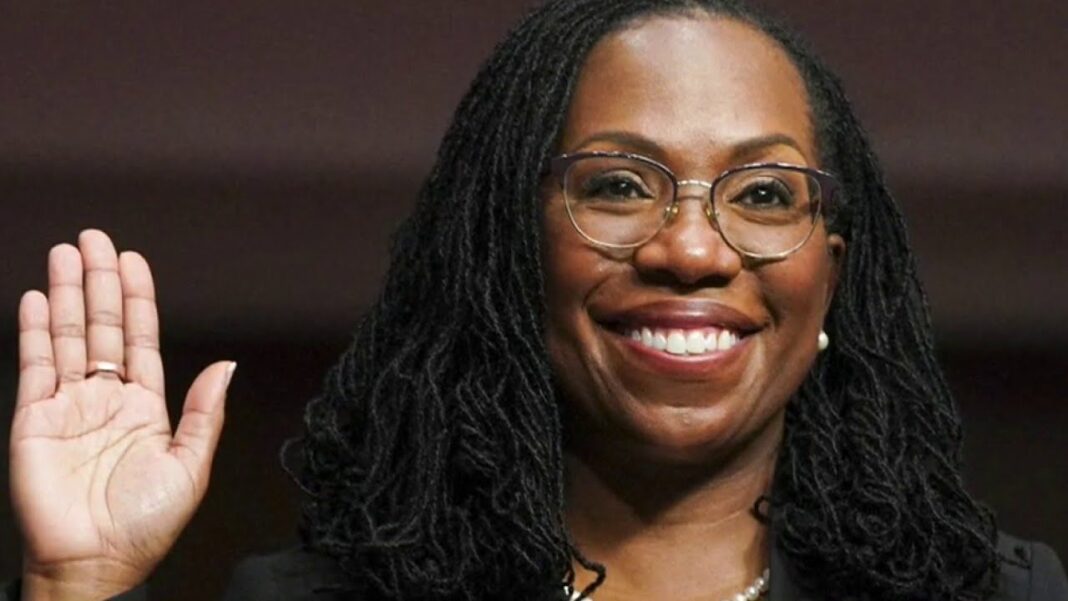
Ketanji Brown Jackson’s defense of Gitmo detainees and criticism of U.S. government likely to be spotlighted in confirmation process.
resident Biden’s nominee for the Supreme Court represented suspected terrorists when she was a federal public defender, going well beyond a bare-bones defense to lambaste the U.S. government for some if its counterterrorism policies and broader approach to the War on Terror.
Biden on Friday nominated Ketanji Brown Jackson, currently a federal judge on the U.S. Court of Appeals for the District of Columbia Circuit, to replace retiring Justice Stephen Breyer on the Supreme Court.
Jackson’s record will no doubt be heavily scrutinized in the coming days as the Senate prepares for its confirmation hearings. Perhaps no aspect of her past legal work will come under more scrutiny than her advocacy on behalf of prisoners detained at the Guantanamo Bay military prison as enemy combatants for their alleged role in terrorist activities.
During her time in the federal public defender’s office, Jackson represented Guantanamo detainees who challenged their imprisonment in a federal court in Washington, D.C.
One of the most prominent cases involved Jackson representing Khiali-Gul, who the Defense Department said was a Taliban intelligence officer in charge of a terrorist cell planning to attack a U.S. base in Afghanistan in 2002. He may have also met with Osama bin Laden in November 2001, according to government documents.
The Defense Department assessed that if released Gul would immediately “seek out prior associates and reengage in hostilities and extremist support activities.”
Gul said he was innocent, claiming he had a job in the Afghan government and helped Americans.
During Jackson’s confirmation hearings for her current position last year and to be a judge on the U.S. District Court for the District of Columbia in 2012, Republican senators grilled the nominee on her work for Guantanamo Bay detainees. Jackson, whose brother served in Iraq, responded she was just doing her job and public duty.
“In all of those situations, the views that were expressed were the views of my clients that I represented them in that capacity, and the briefs did not necessarily represent my personal views with regard to the War on Terror or anything else,” she said in 2012.
Nine years later, as part of her appeals court confirmation process, Jackson told the Senate Judiciary Committee that she was “keenly and personally mindful of the tragic and deplorable circumstances that gave rise to the U.S. government’s apprehension and detention of the persons who were secured at Guantanamo Bay.”






